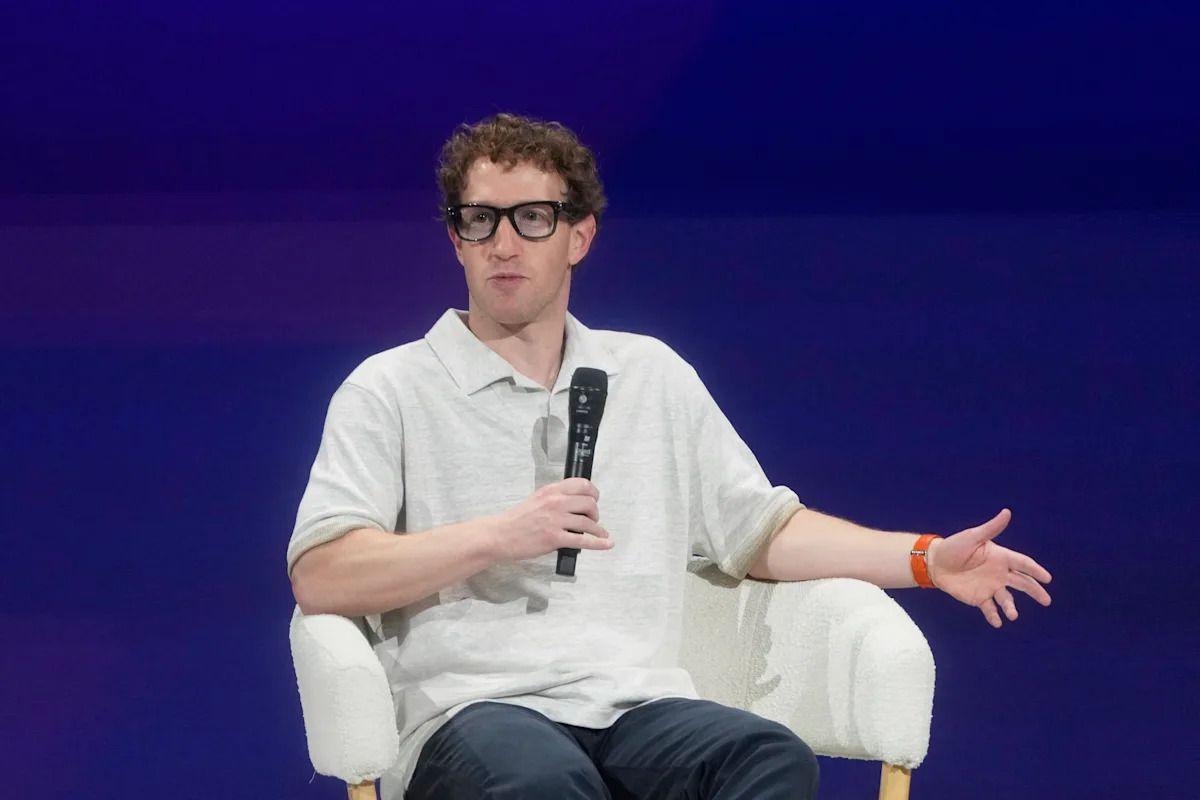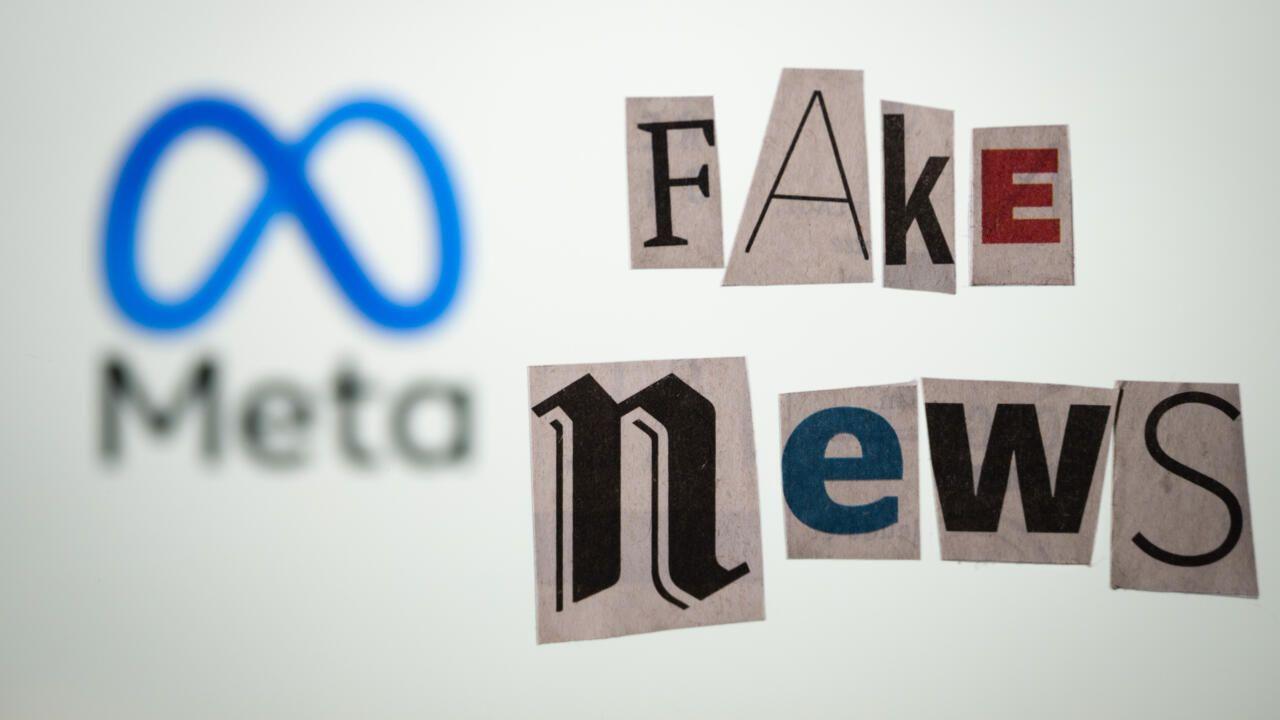Meta and Australian Banks Join Forces to Combat Celebrity-Bait Scam Ads
5 Sources
5 Sources
[1]
Meta, Australian banks tout progress on taking down 'celeb bait' scam ads
SYDNEY (Reuters) - Meta said it has taken down some 8,000 so-called "celeb bait" scam ads from Facebook and Instagram as part of a new effort with Australian banks to curb the practice. The scams use images of famous people, often generated by artificial intelligence, to trick consumers into giving money to non-existent investment schemes. The U.S. social media giant said it took down the scam ads after receiving 102 reports since April from the Australian Financial Crimes Exchange, an intelligence-sharing body run by the country's main banks. Such scams are a global problem, but Meta is under heightened pressure to tackle the issue in Australia with Prime Minister Anthony Albanese's government planning to introduce an anti-scam law by the end of the year. The bill proposes A$50 million ($34 million) fines for social media, financial and telecommunications companies which fail to meet their obligations to crack down on the practice. A public consultation closes on Oct. 4. Australian scam reports jumped by nearly one-fifth in 2023, with losses totalling A$2.7 billion, according to the Australian Competition and Consumer Commission. The commission accused Meta in a 2022 lawsuit of failing to stop the dissemination of cryptocurrency advertisements that used images of celebrities like Mel Gibson, Russell Crowe and Nicole Kidman. It estimated that 58% of cryptocurrency advertisements on Facebook were possible scams. Meta is fighting the lawsuit which is yet to go to hearings. The company is also defending a separate civil lawsuit in California brought by Australian mining billionaire Andrew Forrest who accuses Meta of enabling the publication of thousands of bogus cryptocurrency advertisements on Facebook displaying his face. Forrest says Australians continue to lose money to the scams that he began warning Meta about in 2019. David Agranovich, Meta's director of threat disruption, told a media briefing that the effort with Australian banks was still in its early stages. "What we find promising is that a small amount of high-value signals can help us identify much wider fraud and scam activity," he said, referring to indications within ads about potentially inauthentic content. Asked about Meta's view on Australia's proposed anti-scam code, Agranovich said the company was still working through the draft legislation. "I expect we'll have more to share specifically on that later," he added. Rhonda Luo, head of strategy and engagement at the Australian Financial Crimes Exchange said industry initiatives "are really important to get ahead of the curve on scams, rather than wait for regulation to come in and have effect".
[2]
Meta, Australian banks tout progress on taking down 'celeb bait' scam ads
The U.S. social media giant said it took down the scam ads after receiving 102 reports since April from the Australian Financial Crimes Exchange, an intelligence-sharing body run by the country's main banks. Such scams are a global problem, but Meta is under heightened pressure to tackle the issue in Australia with Prime Minister Anthony Albanese's government planning to introduce an anti-scam law by the end of the year.Meta said it has taken down some 8,000 so-called "celeb bait" scam ads from Facebook and Instagram as part of a new effort with Australian banks to curb the practice. The scams use images of famous people, often generated by artificial intelligence, to trick consumers into giving money to non-existent investment schemes. The U.S. social media giant said it took down the scam ads after receiving 102 reports since April from the Australian Financial Crimes Exchange, an intelligence-sharing body run by the country's main banks. Such scams are a global problem, but Meta is under heightened pressure to tackle the issue in Australia with Prime Minister Anthony Albanese's government planning to introduce an anti-scam law by the end of the year. The bill proposes A$50 million ($34 million) fines for social media, financial and telecommunications companies which fail to meet their obligations to crack down on the practice. A public consultation closes on Oct. 4. Australian scam reports jumped by nearly one-fifth in 2023, with losses totalling A$2.7 billion, according to the Australian Competition and Consumer Commission. The commission accused Meta in a 2022 lawsuit of failing to stop the dissemination of cryptocurrency advertisements that used images of celebrities like Mel Gibson, Russell Crowe and Nicole Kidman. It estimated that 58% of cryptocurrency advertisements on Facebook were possible scams. Meta is fighting the lawsuit which is yet to go to hearings. The company is also defending a separate civil lawsuit in California brought by Australian mining billionaire Andrew Forrest who accuses Meta of enabling the publication of thousands of bogus cryptocurrency advertisements on Facebook displaying his face. Forrest says Australians continue to lose money to the scams that he began warning Meta about in 2019. David Agranovich, Meta's director of threat disruption, told a media briefing that the effort with Australian banks was still in its early stages. "What we find promising is that a small amount of high-value signals can help us identify much wider fraud and scam activity," he said, referring to indications within ads about potentially inauthentic content. Asked about Meta's view on Australia's proposed anti-scam code, Agranovich said the company was still working through the draft legislation. "I expect we'll have more to share specifically on that later," he added. Rhonda Luo, head of strategy and engagement at the Australian Financial Crimes Exchange said industry initiatives "are really important to get ahead of the curve on scams, rather than wait for regulation to come in and have effect". ($1 = 1.4535 Australian dollars) (Reporting by Byron Kaye; Editing by Edwina Gibbs)
[3]
Meta, Australian banks tout progress on taking down 'celeb bait' scam ads
SYDNEY, Oct 2 (Reuters) - Meta (META.O), opens new tab said it has taken down some 8,000 so-called "celeb bait" scam ads from Facebook and Instagram as part of a new effort with Australian banks to curb the practice. The scams use images of famous people, often generated by artificial intelligence, to trick consumers into giving money to non-existent investment schemes. The U.S. social media giant said it took down the scam ads after receiving 102 reports since April from the Australian Financial Crimes Exchange, an intelligence-sharing body run by the country's main banks. Advertisement · Scroll to continue Such scams are a global problem, but Meta is under heightened pressure to tackle the issue in Australia with Prime Minister Anthony Albanese's government planning to introduce an anti-scam law by the end of the year. The bill proposes A$50 million ($34 million) fines for social media, financial and telecommunications companies which fail to meet their obligations to crack down on the practice. A public consultation closes on Oct. 4. Advertisement · Scroll to continue Australian scam reports jumped by nearly one-fifth in 2023, with losses totalling A$2.7 billion, according to the Australian Competition and Consumer Commission. The commission accused Meta in a 2022 lawsuit of failing to stop the dissemination of cryptocurrency advertisements that used images of celebrities like Mel Gibson, Russell Crowe and Nicole Kidman. It estimated that 58% of cryptocurrency advertisements on Facebook were possible scams. Meta is fighting the lawsuit which is yet to go to hearings. The company is also defending a separate civil lawsuit in California brought by Australian mining billionaire Andrew Forrest who accuses Meta of enabling the publication of thousands of bogus cryptocurrency advertisements on Facebook displaying his face. Forrest says Australians continue to lose money to the scams that he began warning Meta about in 2019. David Agranovich, Meta's director of threat disruption, told a media briefing that the effort with Australian banks was still in its early stages. "What we find promising is that a small amount of high-value signals can help us identify much wider fraud and scam activity," he said, referring to indications within ads about potentially inauthentic content. Asked about Meta's view on Australia's proposed anti-scam code, Agranovich said the company was still working through the draft legislation. "I expect we'll have more to share specifically on that later," he added. Rhonda Luo, head of strategy and engagement at the Australian Financial Crimes Exchange said industry initiatives "are really important to get ahead of the curve on scams, rather than wait for regulation to come in and have effect". ($1 = 1.4535 Australian dollars) Reporting by Byron Kaye; Editing by Edwina Gibbs Our Standards: The Thomson Reuters Trust Principles., opens new tab
[4]
Meta and Australia have partnered to crack down on 'celeb bait' scam ads
Meta said it has taken down some 8,000 so-called "celeb bait" scam ads from Facebook and Instagram as part of a new effort with Australian banks to curb the practice. The scams use images of famous people, often generated by artificial intelligence, to trick consumers into giving money to non-existent investment schemes. The U.S. social media giant said it took down the scam ads after receiving 102 reports since April from the Australian Financial Crimes Exchange, an intelligence-sharing body run by the country's main banks. Such scams are a global problem, but Meta is under heightened pressure to tackle the issue in Australia with Prime Minister Anthony Albanese's government planning to introduce an anti-scam law by the end of the year.
[5]
Facebook cracks down on celebrity deepfake scams after $43 million in losses for Australians
Scams are getting more complex as artificial intelligence gets more advanced. That in mind, Meta launched a new Fraud Intelligence Reciprocal Exchange (FIRE) tool in Australia in an effort to cut down on the massive financial losses suffered by victims in the country. Australia saw a rise in celebrity deepfakes pushing investment scams amid the ongoing crypto boom. Such scams used fake images of Aussie celebs like billionaire Gina Rinehart or TV personality Larry Emdur, the Guardian noted. In some cases, as with a deepfake photo of animal activist Robert Irwin in handcuffs, the scams had a conspiratorial tone, as if law enforcement was trying to hide secret financial information from the public, and the celebrities wanted to bring it to light. The FIRE tool is, effectively, a joint effort between Meta and banks to collect information on online scams. It has led to the blocking of 8,000 pages and 9,000 celebrity scams on Facebook in its first six months, the Guardian reported. Citing the Australian government service Scamwatch, Australians had reported $43.3 million -- around $30 million USD -- in losses from social media scams just from January through August, the Guardian says. Online scams are a growing problem in Australia and elsewhere. The Australian Competition & Consumer Commission reported that losses from social media scams rose 16.5 percent to $93.5 million -- around $64 million USD -- in the last year. The FIRE initiative is funded by Meta and run by Meta employees. "Meta has an important responsibility to counter scams that target Australians on our apps," said David Agranovich, Policy Director, Global Threat Disruption at Meta, according to the news site News.com.au. "In addition to investing in our own tools and technology we are working with government and industry partners to fight this scourge. Scams often cut across multiple industries, and the [Australian Financial Crimes Exchange] have been an invaluable partner to help identify and take action against scams targeting Australians." Mashable has written quite a bit on how to avoid scams. But, in general, if you see a questionable image of, say, a celeb being taken away in handcuffs, it's best to verify. Be wary of unsafe links or of sharing financial information. And always remain vigilant, because the scammers will too. "Scammers aren't going to stop their activities," Meta's Agranovich said, via the Guardian. "Once we've blocked them, they'll look for new ways to come back, new ways to get around our defensive, which is why continued information sharing like this is so critical."
Share
Share
Copy Link
Meta Platforms and Australian banks report significant progress in their collaborative effort to tackle fraudulent celebrity-endorsed advertisements. The initiative aims to protect users from financial scams and misinformation.

Collaborative Effort Against Scam Ads
Meta Platforms, in partnership with Australian banks, has made substantial headway in combating fraudulent advertisements featuring fake celebrity endorsements. This joint initiative, launched in March, has successfully removed or blocked over 730,000 Facebook and Instagram ads linked to scams in Australia
1
.Impact of the Scams
The scams, often utilizing AI-generated deepfake technology, have caused significant financial harm to unsuspecting victims. In Australia alone, these fraudulent schemes resulted in losses exceeding A$43 million ($27.5 million) in the first half of 2023, as reported by the Australian Competition and Consumer Commission
2
.Meta's Proactive Measures
Meta has implemented several measures to combat these scams:
- Blocking over 60,000 Facebook accounts associated with scam advertisements
3
. - Removing approximately 30,000 Facebook pages involved in spreading misinformation
3
. - Developing AI models to detect and prevent scam ads before they appear on the platform
4
.
Banking Industry Involvement
Australian banks have played a crucial role in this initiative:
- Westpac reported a 22% decrease in scam-related customer complaints since the partnership began
1
. - Commonwealth Bank of Australia noted a significant reduction in investment scams reported by customers
1
.
Related Stories
Ongoing Challenges and Future Steps
Despite the progress, both Meta and the banks acknowledge that scammers continue to evolve their tactics. To address this:
- Meta plans to expand its fact-checking program in Australia
4
. - The company is working on improving its automated detection systems to identify and remove scam content more efficiently
5
.
Global Implications
The success of this Australian initiative could serve as a model for similar collaborations between tech companies and financial institutions worldwide. As deepfake technology becomes more sophisticated, the need for robust countermeasures and cross-industry partnerships becomes increasingly crucial in the fight against online financial fraud and misinformation.
References
Summarized by
Navi
[1]
Related Stories
Meta Unveils New Anti-Scam Tools for WhatsApp and Messenger to Combat Rising Social Media Fraud
21 Oct 2025•Technology

Meta's Oversight Board Criticizes Inadequate Response to Celebrity Deepfake Scams
06 Jun 2025•Technology

Deepfake Political Ads Surge on Meta Platforms, Raising Scam Concerns
02 Oct 2025•Technology

Recent Highlights
1
Pentagon threatens to cut Anthropic's $200M contract over AI safety restrictions in military ops
Policy and Regulation

2
ByteDance's Seedance 2.0 AI video generator triggers copyright infringement battle with Hollywood
Policy and Regulation

3
OpenAI closes in on $100 billion funding round with $850 billion valuation as spending plans shift
Business and Economy





